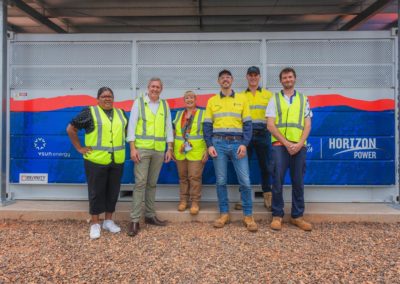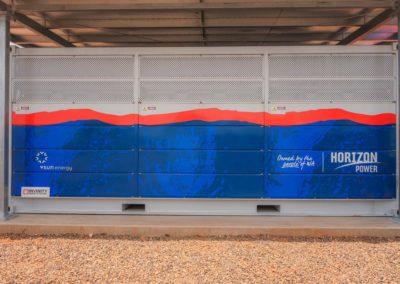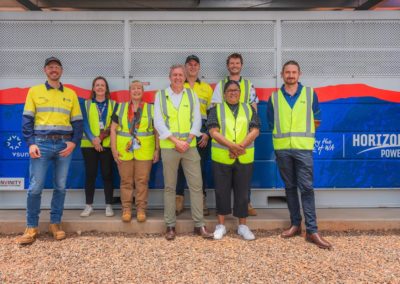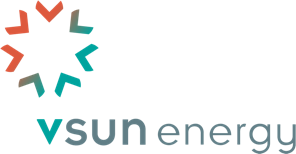Horizon Power
Decarbonising remote microgrids in Western Australia with vanadium flow batteries
At 2.5m square kilometres, Western Australia is the second largest subdivision of any country on Earth and is home to c.3m people, making it one of the more sparsely populated regions of the world. Many of these regions have already installed solar generation locally as part of the transition to a cleaner electric grid, but they remain reliant on fossil fuel generation to ensure continuity of power. In light of the rest of Australia focusing hard on its Net Zero Plan, the need to replace these generators is becoming more important so that communities can better use low-cost renewable energy.
The Brief
The state utility, Horizon Power, is responsible for producing and supplying energy across the region. As part of the transition to cleaner forms of generation Horizon is assessing a number of options to replace diesel generation. This activity involves instigating a number of pilot projects that will use long duration energy storage technologies alongside existing renewable generation to ensure remote communities can avoid burning millions of litres of increasingly costly and carbon emitting diesel fuel in generators to provide power. Kununurra, in the north of the Kimberley province of Western Australia, is one of the locations involved in this inaugural pilot project and is where a vanadium flow battery will be used.
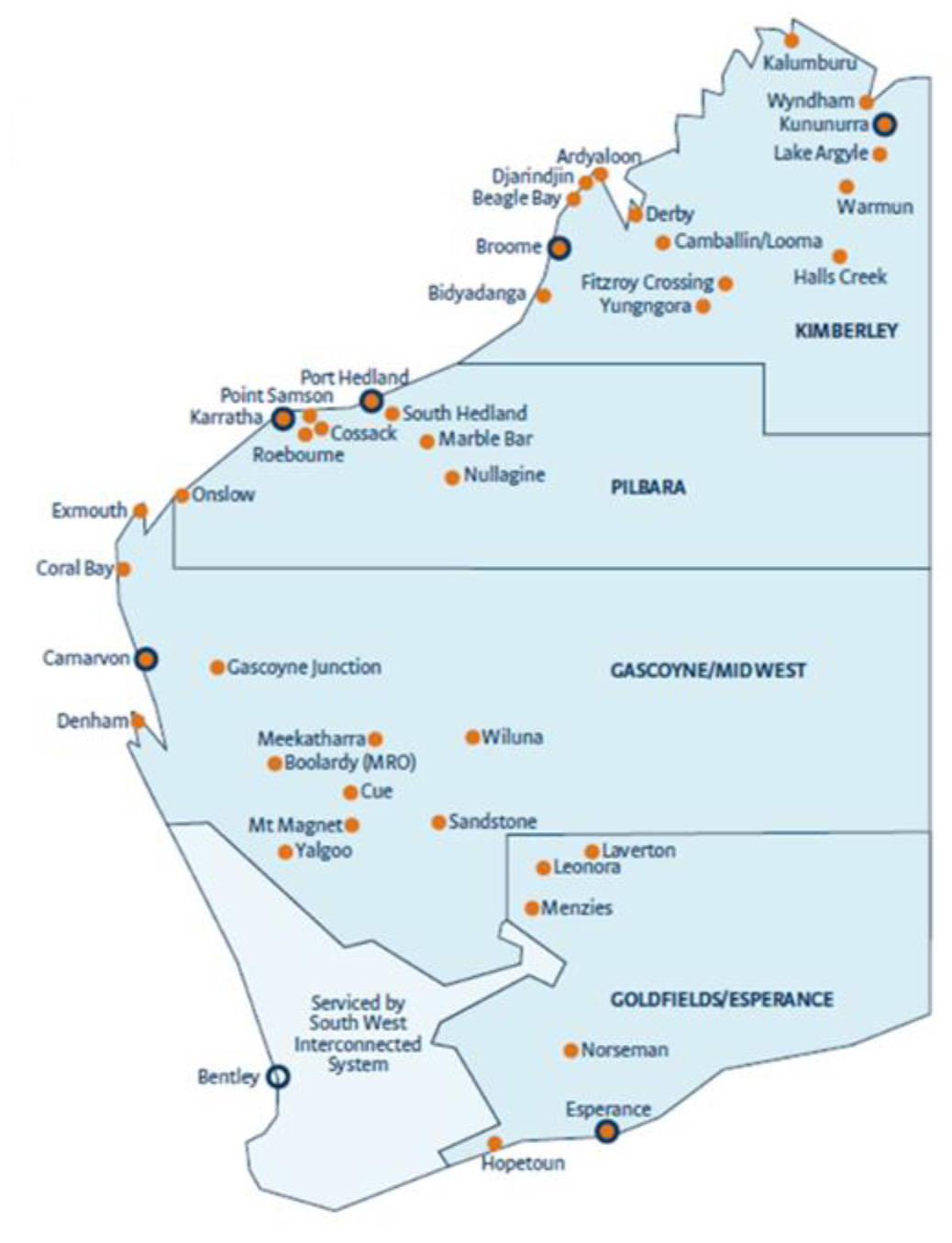
Map of Horizon Power Service Area
This pilot project will demonstrate the reliability of the vanadium flow battery as the area in question is not only remote but also regularly experiences high temperatures and high humidity, factors that are not suitable for deploying lithium systems. As such, VSUN Energy, a part of Australian Vanadium Ltd, were tasked with procuring a VFB system that could be deployed to demonstrate this reliability, regularly unlock the excess solar generated in the local area and provide low-cost, low-emission energy for this remote microgrid.
Invinity VS3 VFB
Provide enough power generated to meet the needs of up to
inhabitants
Interfaced with renewable generation, the battery will be used primarily for Solar Shifting, which means it will store excess solar and wind generation to be used on demand when generation is low and demand is high over varying durations.
Solar shifting
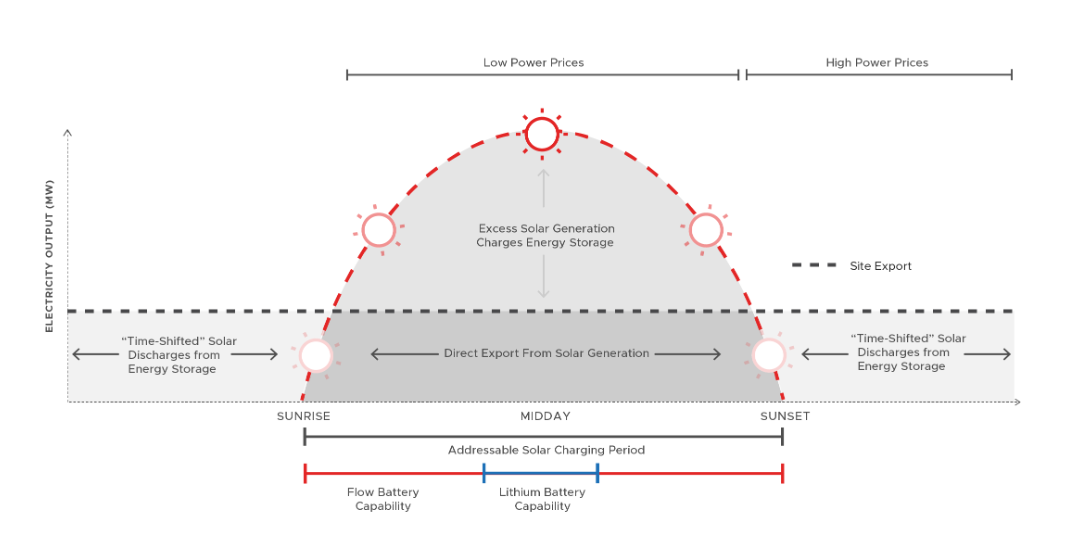
Services provided by the battery include:
This pilot project will demonstrate the reliability of the vanadium flow battery as the area in question is not only remote but also regularly experiences high temperatures and high humidity, factors that are not suitable for deploying lithium systems. As such, VSUN Energy, a part of Australian Vanadium Ltd, were tasked with procuring a VFB system that could be deployed to demonstrate this reliability, regularly unlock the excess solar generated in the local area and provide low-cost, low-emission energy for this remote microgrid.
The Result
Construction, installation and commissioning of the vanadium flow battery was completed in Q3 2024. The project was formally launched on Friday 15 November 2024 at a ribbon cutting event by Hon Reece Whitby MLA, the Western Australian Minister for Energy; Environment; Climate Action alongside CEO Graham Arvidson of Australian Vanadium Limited, acting Horizon Power CEO Jennie Milne, Member for Kimberley Divina D’Anna MLA and Zamien Sumich, Business Development Manager, VSUN Energy.
Clean energy microgrids key to supporting Australia’s 100% renewables future
Microgrids are an important part of Australia’s power networks, given that around 500,000 people (2% of Australia’s population) live in remote areas without a connection to the main electric grid. The transition to net zero meant that the Western Australian government set a target for 1,000 new microgrids using clean energy generation technology.
Currently, many microgrids in the region use diesel generators for general power production and to support existing solar generation in the area. However, this is a costly enterprise – comparing this with the average pump price for diesel in Sydney at around 190.6 cents per litre, using over 71m litres annually would cost around AUD$135.3m every year. As fuel prices have continued to rise over the last few years, this will make the continued operation of diesel generators more costly for remote communities.
By definition, microgrids “must be capable of working in isolation from the main electricity grid” and “reliably integrate, coordinate and optimise various local energy resources”. Therefore, transitioning away from diesel generation will require a reliable alternative solution that can provide all of these requirements and more to ensure greater energy security for these communities and help to lower the costs to consumers.
Vanadium flow batteries are an ideal solution to replace diesel generators to support onsite solar in these microgrids. They are fully capable of providing a range of services (that support both immediate power response as well as for longer durations – see chart below):
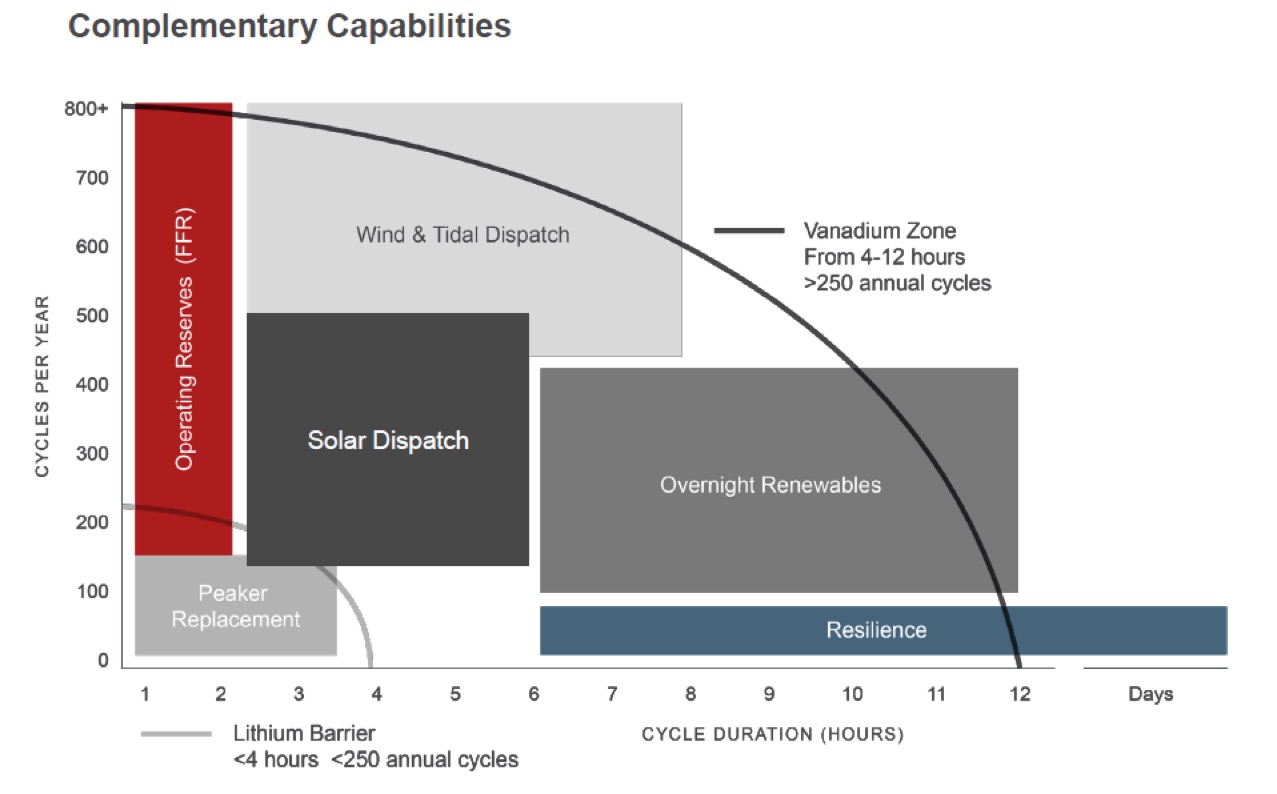
They also have the additional benefit of being able to operate in a wide range of temperatures safely without excessive infrastructure to maintain stable operating temperatures, because they do not suffer the risk of thermal runaway, unlike lithium-ion batteries.
Lastly, they have the potential to use a growing amount of critical local resources. Australia is home to significant deposits of high-grade vanadium that can be used in vanadium flow batteries and the potential for wider rollout of this technology throughout Australia will not only accelerate the transition to clean energy but continue to support a growing and renewables based clean energy economy.
Partners
Interested in Finding Out More?
If you’re a utility, developer, EPC, or financier please contact our commercial team to discuss the details of your project. We work with you to develop a robust business case and financial model.
